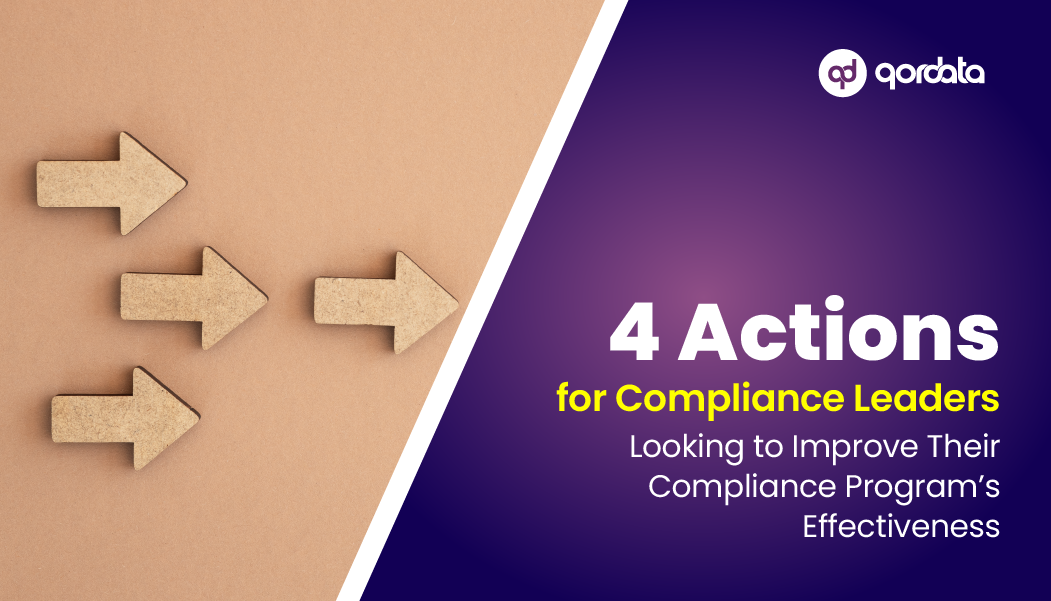Table of Contents
ToggleWith heightened scrutiny on speaker events, it is imperative for Life Sciences companies to leverage a data-driven approach to optimize speaker programs to ensure compliance at all levels.
Engaging healthcare professionals (HCPs) remains one of the most effective ways for Life Sciences companies to provide awareness and education regarding products, diseases, new findings or discoveries, and the appropriate use of medicines being offered by a company.
The best way to drive success in delivering education and value to relevant HCPs and ensure compliance is to leverage a data-driven compliance platform to identify and remediate risks associated with engaging HCPs or third parties before the government does.
Compliance professionals can simplify the process of selecting the right speaker, inviting the right attendees, minimizing the risk of inviting irrelevant attendees, analyzing the key risk areas identified by the U.S. Department of Justice, and more by leveraging the data-driven approach.
Let’s further explore how this novel approach works and maximizes the chances of achieving success regarding attendance, education, and compliance.
Drive Effectiveness & Action by Leveraging Data
To drive effectiveness and action for a speaker program, it’s important to invite the right attendees. Know that respected speakers are a draw for attendees, and if the speaker is credible and offers value to the attendees, you’ll observe fewer declines or last-minute cancellations.
Your speaker’s message should resonate with the audience, and obviously, the entire setting of the event should not offer little or substantive information because this counts as a violation in the eyes of the Office of Inspector General (OIG).
Instead, the speaker program should be designed/arranged to drive substantial changes in the healthcare provider’s behavior to improve patient outcomes further, offer high educational value, and provide a legitimate reason to HCPs for attending the event. This, in a nutshell, is the vision of the OIG, and when compliance professionals opt for assuring compliance, they ensure all these aspects are being covered and that risks are being mitigated. This is where a data-driven approach to compliance enters the fray and enables an organization to simplify HCP engagements.
Analyzing Data to Plan an Event
It’s imperative for sales reps to partner with compliance teams to prioritize a list of eligible (trained and contracted) speakers that are selected as per their expertise, experience, and other critical factors.
Furthermore, they can further improve the effectiveness of the speaker selection process by determining and streamlining influential thought leaders in the vicinity of the event.
One way through which qordata’s data-driven HCP Engagement platform helps you to identify high-risk speakers is by giving you the feature of sanction screening across multiple databases, such as:
-
Office of Inspector 111General (OIG)
-
System for Award 111Management (SAM)
-
FDA Debarment List
-
State Medicaid 111Sanction Lists
Once you analyze this data and identify debarred HCPs, you significantly reduce compliance risks and optimize your speaker choice while saving a significant amount of time and budget it requires to identify eligible speakers for your event manually.
Other Critical Insights Related to HCPs
Analyzing the thought leader networks of the HCP and who they’ve engaged with in the past is critical to determining the influence they’ll have on the audience/attendees.
Publishing abstracts, conducting and appearing in important conferences, and actively participating in thought leadership events are some things to consider while finalizing speakers to ensure value for your attendees and compliance for your event.
The Appropriate Course of Action After Finalizing the Speaker
Once compliance professionals and sales reps have finalized a list of speakers for their upcoming event, they can prioritize speakers according to their expertise, experience, and influence in a specific vicinity/area to drive maximum effectiveness.
They can also tap into the network of speakers to determine their following, in short, review the target audience’s profiles to determine the HCPs that are influenced by the speaker they’re finalizing.
This approach would help you to learn about the audience that you can invite to your event, as they’ll be the ones most interested in learning about what their preferred speaker has to discuss about a particular subject.
To Conclude
With increased scrutiny on how many HCPs are attending an event, whether the event is actually offering valuable knowledge or not, and if the venue of the event is conducive or not, it’s critical to dive deep into the roots of organizing a speaker program and ensure compliance.
By ensuring compliance, you’ll not only minimize the risk of heavy penalties or coming under the radar, but you’ll actually invite attendees who are interested and motivated by specific speakers, maximizing the value and effectiveness of your speaker program.
qordata’s data-driven HCP Engage offers Life Sciences companies and compliance teams the analytics, intelligence, and automation they need to conduct speaker programs and ensure compliant business growth.
Other Relevant Read:



